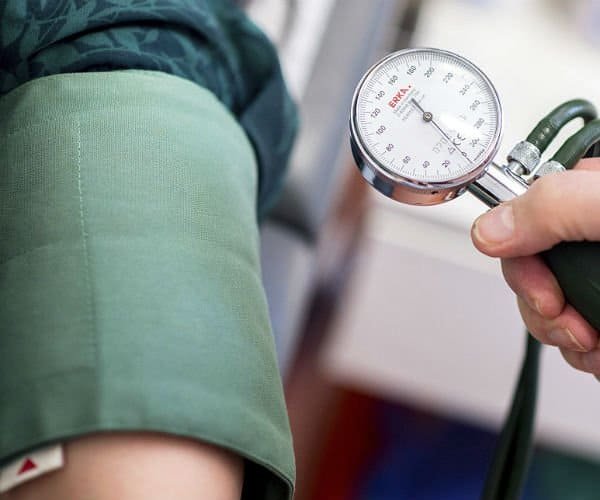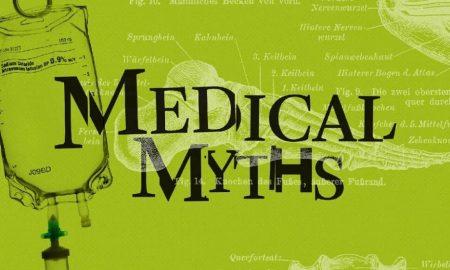
Why the 2018 Midterm Elections Are All About Healthcare

Every election focuses on a few aspects that are at the top of voters’ mind. Historically, election candidates for the top office have promised better social security, more jobs, increase in wages, improvements in national security, and many other issues which were considered of crucial importance by their voting base.
As for the mid-term elections in the US, the most pressing issue seems to be healthcare, and the candidates who present the best case forward as to how they plan on tackling this growing crises in healthcare provision will surely win the battle. Although many voters are already decided on whether they’d be voting for the Democrats or the Republicans, it’s the swing voters which would require a lot more convincing, and to secure government spots in these difficult states, candidates would have to present a case that aims to solve the healthcare woes of these people.

As for the mid-term elections in the US, the most pressing issue seems to be healthcare, and the candidates who present the best case forward will likely win
Has Healthcare Coverage Improved?
As of now, around 92% of the people in New Jersey are covered under some sort of a healthcare coverage plan, and the coverage percentages in other states is also rising over time. However, having more people under coverage does not mean that the provision of healthcare has improved, especially when the rising costs of servicing those coverage plans are taken into consideration. According to analysts, the costs which one must bear out-of-pocket to pay for the deductibles and the premiums are increasing at a much greater rate than the wages people are earning as well as the overall rate of inflation.
For example, in the case of New Jersey, even though so many people are covered (mostly under employer-sponsored plans), premium prices are among the highest in the country. On an annual basis, coverage for just one person through an employer-sponsored plan cost an individual somewhere around $7K in 2017, which was 9% more than what was charged in 2016. Of course employers had to bear a lot of that cost, but employees still had to pay the deductibles and the co-pays.

As of now, around 92% of the people in New Jersey are covered under some sort of a healthcare coverage plan
In an effort to bring more people under insurance coverage, medical reforms of the Obama era such as the Affordable Care Act have been subverted to some extent. For example, provisions in the ACA that aimed to limit the subscription of short-term healthcare plans have been reverted, allowing people to gain easier access to some form of healthcare coverage.
However, these short-term plans leave out a few essentials, such as coverage for maternity-related costs or for mental health-related treatments including those requiring intervention to treat addictions, and hence although we can say that more people have coverage now, we must also understand that many of them don’t have the extent of coverage that they actually need.
Another crucial challenge being faced by the Obama-era medical reforms pertains to guaranteed coverage which people who have pre-existing conditions were receiving. The new government aims to undo this popular medical reform, one that is supported by 58% of those families who support Republicans, and 86% of those who support Democrats.
The Most Important Races
There are a few important races which deserve our attention as they are focused around healthcare coverage. New Jersey’s Tom MacArthur is up against the Democrat Andy Kim, and the major point of differentiation between their campaigns seems to lie with their healthcare plans. MacArthur has publicly supported his party’s stance that the ACA should be repealed, while Kim is in support of the bill.
The elections for the New Jersey Senator will also be an interesting battle between Bob Menendez, who is the incumbent, and Bob Hugin, who has worked as a CEO in a pharmaceutical company. Menendez’s campaign revolves around placing blaming Hugin for the increasing costs of medications for cancer, while Hugin is focusing attention on pointing out that Menendez may be biased in decision making considering he has taken around $1 million in funds for his campaign from pharma companies.
Recent Happenings
As of September, Democrat campaigns seem to be pushing for more attention to healthcare plans, with around 50% of ads being run by the Democrats containing messages pertaining to healthcare provision. Considering that only 28% of the total Republican ads being run on the national level mention healthcare, it is safe to say that the Democrat communication may eventually shift voters, especially the swing voters, towards their side.
More in Medical Conditions
-
Worried About Diabetes? Here Are Some Common Myths
There are several myths about diabetes that are frequently reported as facts. Diabetes misrepresentations can sometimes be harmful, leading to an...
June 29, 2023 -
Many Patients Pay Their Medical Costs Out Of Their Pockets – Even With Insurance
With rising inflation, it has become difficult for people to even fulfill their basic necessities. They are more concerned about how...
June 6, 2023 -
What Is The Right Weight For Kids And How To Gain Weight Healthily
Keeping your child happy and healthy is the primary concern of every parent. Parents usually focus on providing their young ones...
May 12, 2023 -
Thyroid Disorders in Children: What Parents Need to Know
Thyroid disorders are not limited to adults; they can also affect children. The thyroid gland produces hormones that play a crucial...
April 29, 2023 -
Should Doctors Attend To Patients With ‘Do Not Resuscitate Tattoos’?
Doctors at the University of Miami hospital were confronted with a dilemma when a 70-year-old unconscious man with a tattoo “do...
April 3, 2023 -
Your Antidepressant May Not Work If You Keep Doing This One Thing
People use social comparison to measure their self-worth. Social comparison has been in existence since time immemorial, and it is as...
April 1, 2023 -
Pro Tips on Preventing Hair Breakage While Keeping Your Hair Moisturized at Home
Every one of us is thinking a lot about how to forestall hair breakage and keep them moisturized at home. Since...
March 22, 2023 -
Planning to Travel After Retirement? This is the Best Medicare Coverage for You
Does Medicare insurance go with you once you are out of the country? It’s currently open enrollment period, and while planning...
March 14, 2023 -
Lumeris, A Medical Insurance Provider, Expands Into 5 New States & 44 Counties
Lumeris is one of the leading insurance providers in the United States. For years, the Saint Louis, Missouri-based firm has been...
November 8, 2022















You must be logged in to post a comment Login